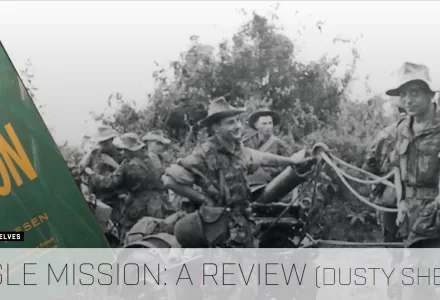
Dusty Shelves
In many military cultures and in the Western popular imagination, individuals who go native or turn rogue evoke curiosity and often revulsion. Soldiers who take off usually face court martial and do not share much in common with their more responsible peers. Historically, turning rogue is mostly synonymous with sociopathic behavior, such as the archetypical Mr. Kurtz in novelist Joseph Conrad's Heart of Darkness and filmmaker Francis Ford Coppola's reimagining of Mr. Kurtz as Colonel Kurtz in Apocalypse Now. Conrad's larger point was that Kurtz was as sophisticated as he was susceptible to the madness inherent in colonialism, so much so that "All Europe contributed to his making." The descent of Europe into World War I, several years after Heart of Darkness' publication, further supported Conrad's argument that a society's sophistication did not render it invulnerable to insanity. In a similar manner, Coppola uses the warping of the previously disciplined and capable Colonel Kurtz as an allegory for America's madness in the intervention in Vietnam.
The idea that going native entails the violent pathology of the Kurtz's stands in stark contrast with René Riesen's efforts to support the Bahnar Tribe during the First Indochina War. Riesen was a supporter of Vichy France during World War II and emerged from that conflict to join French colonial forces as a Non-Commissioned Officer in Indochina....
Moir, Nathaniel L. “Jungle Mission: A Review.” War Room, October 18, 2019




